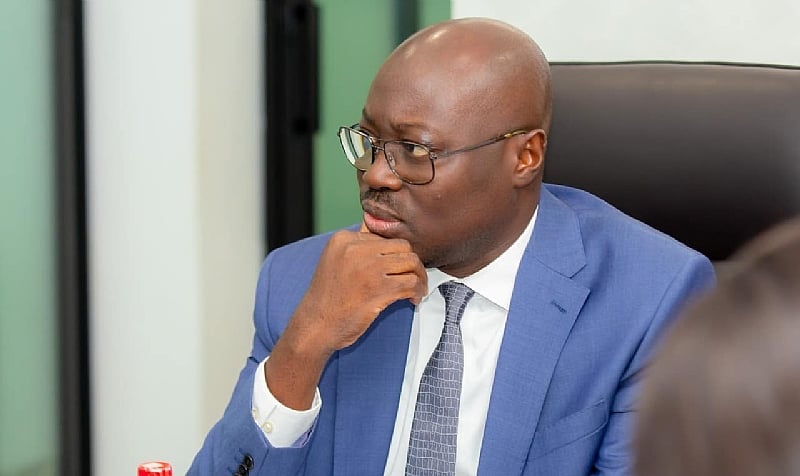Ghana’s Finance Minister, Dr. Cassiel Ato Forson, has painted a stark picture of the nation’s economic landscape inherited from the previous New Patriotic Party (NPP) administration, characterizing it as significantly more dire than initially perceived. Speaking on Citi FM’s Breakfast Show following the presentation of the 2025 Mid-Year Budget Review, Dr. Forson detailed a litany of fiscal mismanagement, failed reforms, and a significantly derailed IMF program, revealing a deeper economic malaise than previously understood. His assessment underscored the severity of the economic challenges facing the newly elected government and highlighted the urgent need for corrective measures. Dr. Forson’s candid revelations served not only as a critique of past policies but also as a reassurance of the current administration’s commitment to restoring economic stability and charting a sustainable path forward.
Upon assuming office, Dr. Forson and his team were confronted with a stark reality that far exceeded their initial assessments. The previously held belief that the IMF program was on track proved to be a misconception, replaced by the harsh realization of significant deviations from targets and a lack of genuine commitment to the reform agenda. This discovery underscored the depth of the economic mismanagement inherited from the previous administration and highlighted the challenges facing the new government in restoring fiscal stability. Dr. Forson’s revelations served as a wake-up call, emphasizing the urgent need for decisive action to address the deep-seated economic issues and steer the nation towards a more sustainable path.
Dr. Forson’s public pronouncements echo the criticisms he leveled against the NPP government during his budget review presentation in Parliament. He accused the previous administration of incompetence and a lack of genuine commitment to the reforms outlined in the IMF program. He pointed out the significant deviation from the program’s targets by the end of 2024, citing the IMF’s own analysis as evidence of the program’s derailment. This critique underscores the severity of the economic situation inherited by the current administration and highlights the need for a renewed focus on fiscal discipline and structural reforms.
The Finance Minister’s assertions are further bolstered by the IMF’s own assessment of Ghana’s economic performance. IMF Deputy Managing Director Bo Li corroborated Dr. Forson’s concerns, confirming that the program had significantly strayed from its intended trajectory. This independent validation underscores the credibility of Dr. Forson’s critique and reinforces the urgency of the situation. The convergence of internal and external assessments paints a clear picture of the economic challenges facing Ghana and underscores the need for decisive action to restore stability and confidence.
Dr. Forson argues that the previous NPP government treated the IMF program more as a political maneuver than a genuine commitment to economic recovery. He contended that the NPP merely paid lip service to the reform agenda, prioritizing short-term political gains over long-term economic stability. This accusation suggests a lack of sincerity in the previous administration’s approach to economic management and further underscores the need for a fundamental shift in policy direction.
Since assuming control of the economy under President John Dramani Mahama, Dr. Forson has emphasized his administration’s commitment to rectifying the economic missteps of the previous government. He asserted that the new administration has realigned the IMF program, restoring credibility and unlocking a crucial disbursement of $367 million. This signifies a renewed commitment to fiscal discipline and a renewed focus on achieving the program’s objectives. Dr. Forson’s pronouncements aim to reassure both domestic and international stakeholders of Ghana’s commitment to economic recovery and sustainable growth. He emphasized the new government’s focus on stability, accountability, and sustainable growth, promising a more responsible and transparent approach to economic management. This commitment to transparency and accountability is intended to build confidence and attract much-needed investment to stimulate economic growth.


